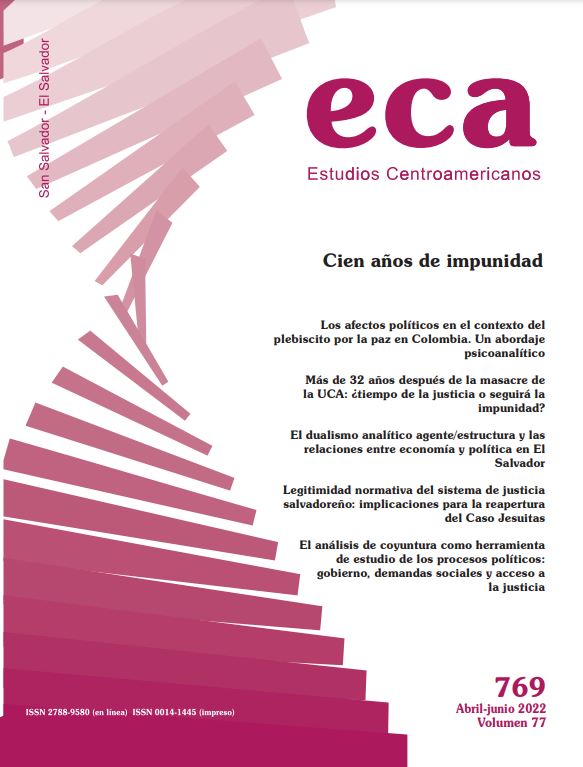Abstract
This article argues in favor of the following hypothesis: since May 2021 the Salvadoran system of justice has lost normative legitimacy and this has an impact on the impartial exercise of justice for lack of controls, consistency with the law and democratic principles. This promotes devious actions and facilitates the development of an exclusionary criminal policy. Based on this, it is foreseeable that the judicial treatment of the Jesuit Case may not be trustworthy. The hypothesis is evidenced by using the external observer methodology (Jackson & Bradford, 2019), who analyze the normative legitimacy of justice and underscore elements of criminal justice policy. The article concludes by identifying the lack of normative consistency in the judicial system and the risks that this entails for an adequate treatment of the Jesuits Case and other daily cases that may eventually affect ordinary citizens.
ECA Estudios Centroamericanos, Vol. 77, No. 769, 2022: 87-100.

This work is licensed under a Creative Commons Attribution-NonCommercial-NoDerivatives 4.0 International License.
Copyright (c) 2022 ECA. Estudios Centroamericanos






